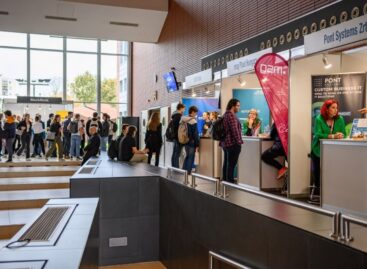Brands in battle
Guests at the meeting held by Trade Magazin Márkaklub in late February were looking for an answer to the question of what opportunities arise for brands as the result of the economic crisis? Regarding sales and their composition expected for this year, the chairman of the National Retail Association, Péter Feiner said that it is impossible to provide an accurate forecast, as their member keep revising their plans each quarter of the year. He hopes that the drop in food sales will not exceed 3 percent, but a bigger drop in overall retail turnover is certain in 2009. One of the reasons for the drop in sales has been a change in the structure of consumption, with a shift towards private labels and promotions becoming more frequent. The importance of neighbourhood shops is expected to grow with the growing costs of commuting. According to Judit Szalóky Tóth, managing director of Nielsen, the frequency of shopping is increasing, with consumers trying to spend on essential articles only and to avoid impulse products. Neighbourhood shops are expected to produce growth. Sales of FMCG products in terms of quantity have been shrinking since April 2008, with a 3.5 percent drop in the last quarter, in spite of an average price rise of 9 percent leading to a 6.1 percent year on year increase in sales in terms of value. In the opinion of Ákos Kozák, managing director of GfK Piackutató, the market shows rapid changes. He expects the drop in demand to average 5-8 percent for 2009. A really sharp drop in demand has only begun last November. According to GfK research, 2008 brought an improvement in the market position of supermarkets and drugstores, but discounts have been showing accelerating growth in the last four months of the year. Looking at the present HUF/EUR exchange rate, it will be interesting to see if discounts can keep up with local chains, or if they will be forced to begin stocking more Hungarian products. – Manufacturing private labels for retailers is no great prospect for brand manufacturers, as the only way out of the crisis for them is to strengthen their brands – says Ferenc Deák, CEO of Henkel. Companies which have been experiencing a drop in demand since 2006, have also been experimenting with new BTL strategies since then. CSR projects are expected to be among the first victims of budget cuts. As Judit Szalóky Tóth pointed out, an accurate definition of brand advantages will become even more important. The price/value ratio of private labels has been improving in recent years. 70 percent of consumers believe that a better store means a better quality PL as well. Another major change has been the segmentation seen among private labels. Higher quality PL products have begun competing with brands. Intensive promotional activity has contributed to the success of brands in retaining their market positions. However, precise analysis of promotions is needed in order to focus resources where they can be used most effectively. Ákos Kozák spoke about a survey conducted by GfK and Tárki, which had revealed that 50 percent of consumers suffered a substantial decline in purchasing power last year, which in turn results in rising demand for products intended for home use. The danger of the black market becoming increasingly active is also real. There were diverse opinions regarding the optimal behaviour for retailers in times of crisis. According to data from Nielsen, we have the highest percentage of consumers in Europe (22 percent) who would go to a new store if they see a better promotional offer there. According to Ferenc Deák, manufacturers’ brands can only retain their positions in the long run by continuous innovation. The future of different products depend on the resources available for R+D. In the absence of sufficient resources for R+D, “B” brands are expected to drop out of competition. Competition in innovation has already reached private labels as well. E-commerce will not be a priority this year, with most companies focusing on survival. Regarding B2B activities, there is still a lot to be done. The introduction of electronic invoicing and the modernisation of logistic systems are far from complete, although these could bring substantial cost reductions. Participants of the discussion agreed that a more stable and predictable legislative background is needed to improve the business environment. Cost increases occurring as a result of the weak HUF cannot be transferred to consumers, which means that profits for manufacturers are shrinking. Low profitability also leads to being left behind in the race for innovations which is taking place within multinational organisations.
Related news
Related news
Gross from 600 thousand to 1.5 million: numbers also reduce the anxiety of career starters
🎧 Hallgasd a cikket: Lejátszás Szünet Folytatás Leállítás Nyelv: Auto…
Read more >





